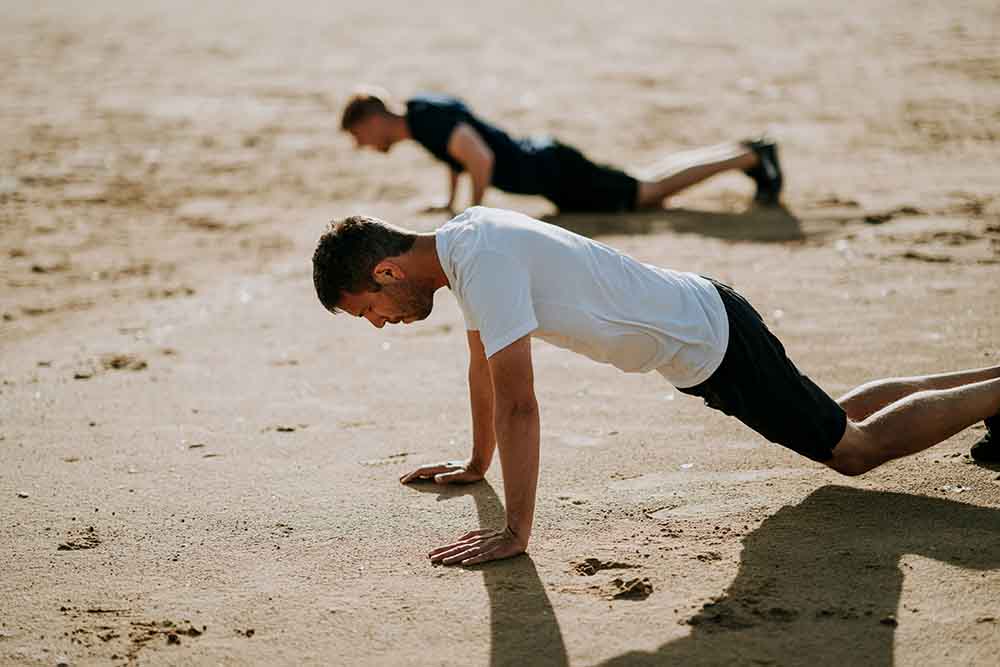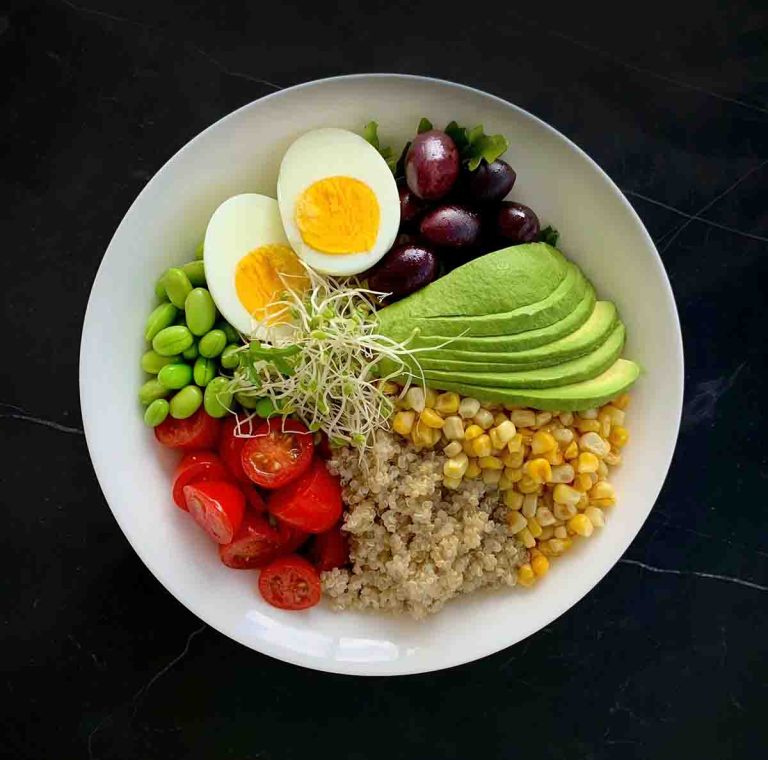Have you ever finished a workout only to wake up the next day feeling like your muscles have turned to stone? Or noticed that your recovery seems to take forever when you’re not drinking enough? There’s a good reason for that, and it goes beyond simply needing water.
Dehydration doesn’t just make you thirsty — it directly impacts how your muscles function and recover. Understanding this connection can help you move better, recover faster, and feel your best every day.
References:
Journal of Athletic Training: Dehydration effects on muscle performance
Sports Medicine Research: Hydration and recovery protocols
How does water affect your muscle function?
Your muscles are about 75% water, and they need this moisture to work properly. When you’re well-hydrated, your blood flows efficiently, delivering oxygen and nutrients to your muscles during exercise and recovery. Think of it like a highway system that keeps everything moving smoothly.
But when you’re dehydrated, this system slows down. Your blood becomes thicker and moves more slowly, which means your muscles don’t get what they need when they need it. It’s like a traffic jam that prevents delivery trucks from reaching their destinations.
Proper hydration also helps remove waste products like lactic acid that build up in your muscles during exercise. When these waste products stick around because of poor circulation, they irritate your nerves and muscles, causing that familiar stiffness and soreness.
References:
American Journal of Physiology: Muscle hydration and elasticity
Exercise and Sport Sciences Reviews: Cellular hydration effects
Why do electrolytes matter for muscle stiffness?
When you sweat, you lose more than just water — you also lose electrolytes like sodium, potassium, and magnesium. These minerals are crucial for proper muscle function.
Sodium and potassium work together to regulate nerve impulses and muscle contractions. When they’re out of balance due to dehydration, your nerves can become hyperactive, leading to muscle spasms and cramps.
Magnesium is especially important because it helps your muscles relax after contracting. Think of calcium as the “contract” signal and magnesium as the “relax” signal. Without enough magnesium (or water), your muscles can get stuck in a contracted state, creating stiffness that’s hard to shake.
Heavy sweating during exercise depletes these important minerals. If you only replace the water without the electrolytes, your muscles may continue to feel stiff and recovery will take longer.
References:
European Journal of Applied Physiology: Electrolyte balance and muscle function
Sports Health: Hydration assessment in athletes
How does dehydration increase physical stress on your body?
When you’re dehydrated, your heart has to work harder to pump thicker blood through your body. This reduces oxygen delivery to your muscles, forcing them to rely on less efficient energy pathways that produce more lactic acid. Higher lactic acid levels directly contribute to that burning sensation, fatigue, and post-workout stiffness.
Dehydration also affects your cells at a microscopic level. When muscle cells are damaged during exercise (a normal part of getting stronger), they need proper fluid balance to repair effectively. Dehydrated cells struggle to maintain this balance, which can trigger more pain receptors and delay the healing process.
References:
Clinical Biomechanics: Cellular stress and muscle function
International Journal of Sports Medicine: Hydration and protein synthesis
What happens to your connective tissue when you’re dehydrated?
It’s not just your muscles that suffer when you’re low on fluids. The connective tissues that surround and support your muscles — like tendons and fascia — also need proper hydration to stay elastic and flexible.
When these tissues dry out, they become less pliable and more likely to cause restrictions in your movement. This limited mobility puts additional strain on your muscles, creating a cycle of increasing stiffness.
Even your joints are affected, as dehydration can thicken the synovial fluid that lubricates them. Thicker fluid means more friction and less smooth movement, which again forces your muscles to work harder and become more prone to stiffness.
References:
Neuroscience Letters: Dehydration effects on motor control
Medicine & Science in Sports & Exercise: Recovery optimization strategies
Why does recovery take longer when you’re dehydrated?
Recovery isn’t just about rest — it’s an active process where your body repairs damaged tissues and adapts to become stronger. Dehydration throws several wrenches into this process.
For one, it raises levels of cortisol, a stress hormone that can suppress your body’s natural anti-inflammatory responses. This prolongs the inflammation in your micro-torn muscle fibers, delaying repair and extending soreness.
Water is also essential for the biochemical reactions involved in building new muscle tissue. Without adequate hydration, protein synthesis (the process of creating new muscle proteins) becomes less efficient, further slowing your recovery timeline.
References:
European Journal of Clinical Nutrition: Early dehydration markers
Physiology & Behavior: Short-term hydration effects
Is mineral water better than regular water for muscle recovery?
While plain water is good for basic hydration, natural mineral water offers additional benefits that directly address the root causes of muscle stiffness and slow recovery.
Natural mineral water or sparkling mineral water which tastes better when served chilled for some people contains electrolytes like sodium, potassium, and magnesium that help restore the balance lost through sweat. These minerals don’t just improve hydration — they actively support muscle function and recovery: sodium and potassium help normalize nerve function and fluid balance, magnesium helps muscles relax and reduces cramping, and the electrolytes in mineral water improve absorption in your intestines, speeding up rehydration compared to plain water.
Some mineral waters also contain trace minerals that act as cofactors for enzymes involved in muscle repair and protecting against oxidative stress. While your body primarily manages these processes on its own, the right minerals can provide valuable support.
| Option | Best For | Advantages |
|---|---|---|
| Plain Water | Daily hydration, light activity | Basic hydration, zero calories |
| Mineral Water | Post-workout, daily use | Natural electrolytes, better absorption |
| Sports Drinks | Intense workouts (>60 min) | Complete electrolyte replacement |
| Coconut Water | Light-moderate activity | Natural electrolytes, less processed |
References:
American College of Sports Medicine: Exercise hydration guidelines
International Journal of Sport Nutrition: Fluid replacement strategies
What practical steps can you take to improve hydration and recovery?
Based on the science, here are simple ways to optimize your hydration for better muscle function and faster recovery.
Choose mineral-rich water when possible. Look for options with magnesium (>50 mg/L) and calcium (>100 mg/L) on the label. Natural mineral water provides balanced electrolytes that support muscle function.
Time your hydration strategically. Drink about 500 mL of water 2–3 hours before exercise to prime your hydration. Then sip regularly during and after your workout.
Add natural electrolytes for intense activity. For harder workouts, consider coconut water, a small pinch of sea salt in your water, or watermelon water as natural electrolyte sources.
Support hydration with the right foods. Pair your hydration strategy with magnesium-rich foods like spinach and nuts, plus potassium sources like bananas and sweet potatoes.
References:
Sports Medicine: Comprehensive hydration review
Nutrients: Hydration and athletic performance
Key takeaways for muscle health
Optimal hydration isn’t just about preventing thirst—it’s fundamental to muscle function, flexibility, and recovery speed. Start by assessing your current hydration status through urine color and post-exercise recovery quality. Then implement a strategic hydration plan that includes pre-, during, and post-exercise fluid intake with appropriate electrolyte balance.
Remember that consistency matters more than perfection. Small improvements in daily hydration habits compound over time, leading to noticeably better muscle function and faster recovery. Monitor your body’s response and adjust intake based on activity level, climate, and individual needs.
Within 3-7 days of optimizing your hydration routine, you should notice improved flexibility, reduced exercise-related stiffness, and faster post-workout recovery. For complete adaptation and maximum benefits, maintain consistent optimal hydration for 2-4 weeks.
References:
Clinical Sports Medicine: Hydration optimization protocols
American Journal of Sports Medicine: Recovery timeline studies
Photo by Annie Spratt




